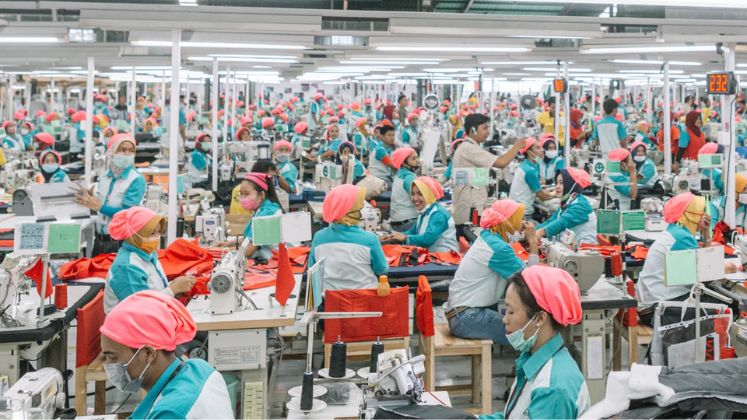
Asian labour unions and industry groups are sounding the alarm at a new US wave of tariffs they claim threatens to ravage the region’s garment industry. They warn that high tariffs would encourage manufacturers to close shops or relocate production to countries with better trade terms at the cost of massive job losses.
The loss of jobs would extensively impact workers’ capacity to survive from day to day, Ath Thorn, vice president of the Coalition of Cambodian Apparel Workers’ Democratic Union, which organizes 80,000 factory workers, explained.
From 1st August, new US tariffs will take effect, terminating a 90-day pause. Bangladesh and Cambodia, two of the biggest garment exporters, are preparing for 35% and 36% rates respectively. While other countries are facing tough terms, others in the region such as India and Indonesia remain in negotiations with Washington. Vietnam has managed to strike a deal limiting its tariff to 20%.
Both nations need the US as a critical market. Last year, Bangladesh sold US $ 8.4 billion in goods to the US, of which US $ 7.34 billion was apparel. Cambodia sent close to US $ 10 billion worth of goods to the US in 2024, with more than half of that made up by garments, footwear, and travel items. It employs over 900,000 Cambodians and is an essential support of its economy.
Even after a decrease from an initial 49% tariff that was levied in April, the new 36% one has maintained the strain in Cambodia’s garment sector.
Yang Sophorn, head of the Cambodian Alliance of Trade Unions, feared that falling tariffs in neighbouring countries would cause an exodus of factories out of Cambodia. She said that when businesses see better conditions just across the border, they will not think twice about moving, with the threat that such a phenomenon would fall heavily on women workers who are the sole breadwinners for many families.
This is reflected in Bangladesh as well. Selim Raihan, who teaches economics at Dhaka University said that if Vietnam, India, and Indonesia get better offers, they will become uncompetitive. He added that the hike from 15% to 35% would tighten profit margins and make many factories reduce their scale or close completely.
“Tariffs will skyrocket with over twice the tariff,” Mohiuddun Rubel, ex-director of the Bangladesh Garment Manufacturers and Exporters Association (BGMEA) and senior executive at Denim Expert Ltd told Reuters. “Our future depends on what type of agreements our competitors receive.”
Though the US is in talks with India, tariff conditions for Pakistan are yet to be disclosed.
In Bangladesh, the garment industry employs an estimated 4 million workers—largely rural, poor women who rely on regular factory employment. The ripple effects of the tariffs will be hard to bear throughout the country, Raihan said.
Ath Thorn called on Cambodian authorities to negotiate more favourable terms or find alternative markets to help absorb the shock. He said that if they don’t take action, the impact will be devastating.






